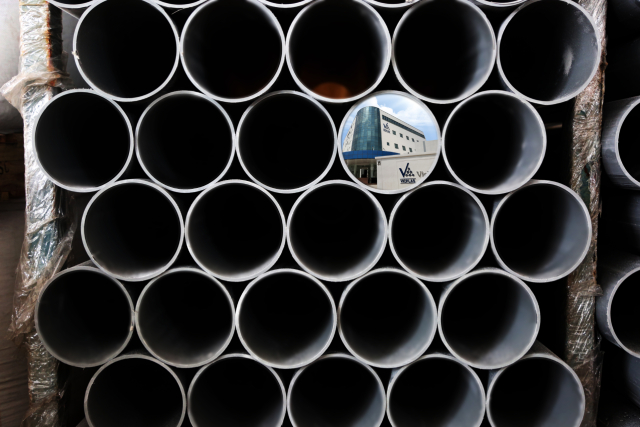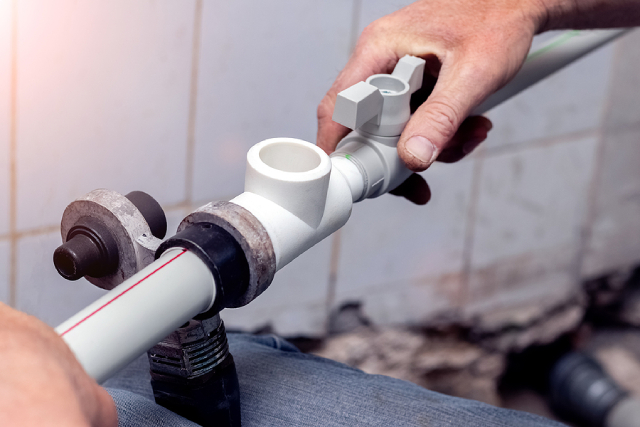
14 Dec PVC or uPVC: Which to Choose for Your Applications
PVC and uPVC are two types of widely used plastics commonly used to make a variety of construction materials. Therefore, when it comes to choosing such materials, be it for electrical conduits, pipes and more, it is recommended to first understand the difference between PVC and uPVC and learn the qualities of each so you can best choose the one that provides the best-cost value for your needs.
What are PVC and uPVC?
Polyvinyl chloride (PVC) is the world’s third-most widely manufactured artificial plastic polymer. It is a flexible type of plastic used in producing various construction materials like fences, furnishings, siding, and piping, with the larger ones generally found in non-potable water distribution systems. In addition, it can also be used for insulting electrical cables.
In contrast, unplasticised polyvinyl chloride (uPVC) is a material without the plasticisers BPA and phthalates found in PVC, the two components responsible for its flexibility. It is often referred to as rigid plastic because of the absence of these materials and thus boasts significantly improved structural performance and cost-effectiveness. In addition, the innovations around uPVC offer better building performance that ensures environmental sustainability and energy efficiency.
PVC vs uPVC
Although PVC and uPVC piping solutions differ, many typically confuse the two since both are made from polyvinyl chloride. The two materials also exhibit different properties best used for specific applications.
1. Uses
PVC pipes are widely used in most parts of the globe as plastic piping for transporting non-potable water and constructing sewer lines. PVC is a common substitute for aluminium and copper pipes used in pool circulation systems, irrigation, and waste lines. It is also a suitable replacement for metal since it is relatively easy to cut into pieces and fastened together with glue. Other uses of PVC include waterproof or leather-like clothing materials, shoes, vinyl flooring, and many other plastic products.
Conversely, uPVC pipes are best for underground drainage systems and potable water supplies thanks to their non-toxic and lead-free construction and smooth inner walls that enable steady water flow with minimal turbulence. Moreover, they have excellent resistance against various factors such as chemical erosion, rust, and other natural elements compared to PVC pipes. Besides piping, uPVC’s rigidity, durability, and high weather resistance have made it a go-to material for all sorts of products like windows, door frames, dental pieces, and medical equipment.
2. Durability
PVC pipes are generally not as durable as uPVC pipes since they are designed to be softer and more flexible. However, both plastic pipes have superior resistance against oxidation corrosion, sunlight, and various chemicals.
3. Safety and risks
The lack of plasticisers such as BPA and phthalates makes uPVC pipes much safer than PVC pipes. Another risk with PVC pipes is the possibility of plasticiser leakage, which can detrimentally affect the environment. Furthermore, some phthalates used to make plastic pipes more flexible, like dibutyl, DEHP, and benzyl butyl, have been restricted or banned over the years due to mainstream environmental and health concerns. This is a non-issue with uPVC pipes, which do not contain plasticiser components.
4. Disposal
Both PVC and uPVC are non-biodegradable materials, but the latter is recyclable. This makes uPVC pipes and products a great choice for green building design and upcycling – the process of re-adapting or repurposing old materials or items into new products to extend their lifespan.

Conclusion
PVC and uPVC are two of the most popular plastic materials used in all kinds of construction solutions and other commercial products. Their most notable difference, using or omitting plasticisers, has led each to have unique qualities best suited for their own applications.
If your project demands sustainable, lead-free, and BSA-SGBC Green Mark recognised uPVC drain pipes and fittings, Vicplas Holdings is here to help. As a leading manufacturer of environmentally friendly and innovative piping solutions, you can depend on us for all your ISO-certified pipes and fitting needs. To learn more about our sanitary plumbing solutions, electric works, and hydroponic systems in Singapore, contact us today and get more details.
